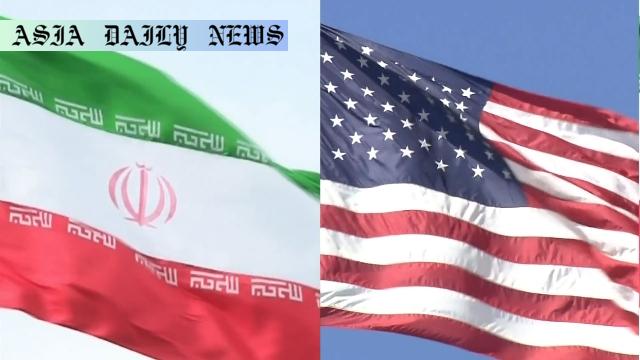Iran-US Talks remain unclear as Tehran seeks guarantees against future attacks amid heightened military tensions.

Background of the Iran-US Talks Stalemate
The ongoing stalemate in talks between Iran and the United States centers around Iran’s contentious nuclear development program. Recent developments have further complicated the situation, making an already unstable diplomatic relationship even more fragile. Since the Israeli attack on June 13, which targeted Iranian nuclear and military facilities, the diplomatic environment has been rife with escalating tensions. The backlash included 12 days of military responses between Iran and Israel, dragging the United States into the fray as it conducted its own airstrikes on Iranian facilities. This sequence of events has left the future of the Iran-US discussions uncertain.
Iran’s Position and Struggles
Iran has been unequivocal about its stance on U.S. cooperation. Esmaeil Baghaei, the spokesperson for Iran’s Ministry of Foreign Affairs, communicated that the critical issue preventing talks from resuming is the absence of assurances from the U.S. and Israel. Iran has demanded a guarantee that no future attacks on its facilities will occur before discussions can advance. This demand arises from a broader pattern of distrust involving Iran’s nuclear ambitions, which have long been criticized and surveilled by Western powers who suspect Tehran is aiming for weaponization instead of peaceful nuclear development.
US and Israel’s Strategic Alignments
Israel’s offensive on June 13 has further driven a wedge between Washington and Tehran. U.S. President Donald Trump recently suggested that discussions may resume soon; however, his administration has yet to finalize any timetable, signaling hesitancy potentially influenced by alliances with Israel. Israel maintains that aggressive measures are necessary to neutralize threats stemming from Iran’s nuclear activities. The attack and its consequences have showcased an unsteady geopolitical landscape, firmly rooting Israel and the United States in their military-first approach toward handling Iran.
Impacts of Military Escalations
Both Iran and Israel have engaged in retaliatory actions, ranging from missile strikes to targeted operations, further intensifying the already volatile situation. These military actions underscore the difficulty of achieving any form of diplomacy amidst such hostilities. Civilian populations in both regions have also faced indirect consequences from the disruptions caused. The military build-up, punctuated with harsh rhetoric, reinforces a dangerous narrative of perpetual conflict unless diplomatic channels are effectively reopened and maintained. This escalatory behavior places an additional burden on international organizations striving to broker peace and address the nuclear impasse.
The Road Ahead: Diplomatic Hurdles and Opportunities
The likelihood of resuming Iran-US nuclear talks rests on complex factors, with trust—or the lack thereof—acting as a pivotal element. Tehran’s focus on obtaining guarantees reflects a defensive posture driven by the need to mitigate vulnerabilities. While Washington emphasizes oversight and verification mechanisms, bridging these differences requires more than just political will. Independent mediators or regional allies may play a facilitative role, but their influence remains contingent on both nations’ willingness to compromise. Time will tell if these diplomatic avenues can circumvent escalating military tensions and bring the dialogue back on track.
Conclusion: Global Implications of an Unresolved Conflict
The future of the stalled Iran-US nuclear talks showcases not merely geopolitical divisions but also the broader consequences of failing to effectively resolve conflicts of this scale. The international community observes as key global players deliberate the terms of engagement. Whether these discussions hold material outcomes or fall victim to entrenched divides remains to be seen. As of now, the middle ground appears elusive, leaving the broader implications of this standoff reverberating far beyond the Middle East.
Commentary
Understanding Iran’s Demand for Guarantees
Iran’s call for a no-attack guarantee is not just a political posture; it represents a country grappling with repeated violations of its sovereignty. The insistence on such guarantees post-June 13 reflects a response rooted in self-preservation. From Tehran’s perspective, engaging in talks without securing such promises would only render its position vulnerable to future hostilities. Thus, it’s imperative to view this demand not merely as a negotiation strategy but as a fundamental requirement for stability.
Can the US Balance Diplomacy and Alliance with Israel?
One of the United States’ significant challenges in navigating this impasse is balancing its deep-rooted alliance with Israel and its aims for non-proliferation in Iran. Historically, the U.S. has tread a precarious line between exerting pressure on Tehran and aligning with Israel’s hardline security-first approach. However, if Washington aims for a resolution, it must develop a framework that addresses Iran’s concerns while maintaining Israeli cooperation. The complex choreography of geopolitics makes this task exceedingly difficult yet vital for long-term peace.
The Role of Global Diplomacy
This impasse is an opportunity for the international community to step forward, emphasizing the importance of neutral arbitration. While entities like the United Nations have frequently acted as facilitators in similar situations, their ability to effectively mediate hinges on the cooperation of major players like the U.S., Iran, and Israel. A multilateral approach—drawing upon regional allies like European forces—might provide a blueprint for progress. That said, such efforts can only succeed if both nations commit to genuine negotiation rather than entwining talks with political brinkmanship.
In conclusion, the existing gridlock is a sobering reminder of the fragility of international diplomacy when mutual trust erodes. Although fraught with obstacles, the potential to reignite discussions provides hope for a more stable future. The stakes, both regional and global, necessitate immediate and decisive action by all parties involved.


